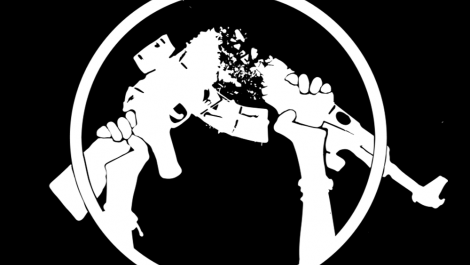Stay up to date with our international antimilitarist activism.
December Prisoners for Peace List | 2025
This page lists individuals currently imprisoned for their conscientious objection, peaceful beliefs, or nonviolent actions. These cases highlight the challenges faced by people jailed for exercising their rights, including freedom of thought, conscience, religion, and peaceful expression.
Yurii Sheliazhenko, conscientious objector to military service and human rights defender, under immediate threat
The undersigned organizations express serious concern regarding the continued persecution of Ukrainian human rights defender Yurii Sheliazhenko*, a conscientious objector to military service. He is currently under an alarming threat of being arrested and forcibly conscripted under Ukraine’s system of universal military registration, which is enforced through coercive measures including arbitrary detentions and forced transfers to conscription offices.
Colombia: Nonviolent Direct Action against Expodefensa repressed by Public Forces
On 1st December 2025, antimilitarist organisations, collectives, activists and artists carried out a nonviolent direct action against the Expodefensa Arms Fair, held in Bogotá, Colombia, from 1st to 3rd December. The action, called as a peaceful sit-in outside the Corferias exhibition centre at 2pm on the opening day of the fair, was harassed, hindered and obstructed from the outset by the presence of Public Forces.
Cyprus (North): Trial of conscientious objector Hasan Rahvancıoğlu postponed: He will face three separate cases
The trial of Turkish Cypriot conscientious objector Hasan Rahvancıoğlu, who is being prosecuted for refusing to comply with a mobilisation call, was held on November 27 at the military court in Nicosia.





